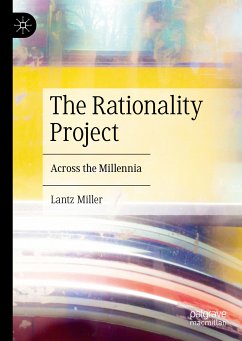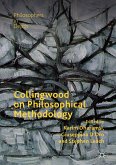Rationality has been philosophers' concern stretching back to ancient times. But just what is rationality? In trying to answer this question, rationality is found to be more complex than supposed. This book investigates this supposition and thereby aspires to bring together the facets of the peculiar phenomenon that is rationality. Rationality is shown to be both more complex than presumed and yet more accessible than many may have feared. One argument concedes the common assumption that those interested in rationality need only rely on intuitions about this phenomenon. Yet, even moderate research reveals the concept's profound fuzziness. This book aims to set forth a theory, explanation, and unification of the kindred and disparate understandings of this elusive concept, rationality.
Lantz Fleming Miller, a visiting professor of philosophy at Ashoka University in India, focuses on moral, social, and political philosophy, especially pertaining to technological developments. He has published dozens of articles on these subjects in prominent journals. He has also taught philosophy at the University of Twente, Netherlands, and institutes in Paris and New York.
Dieser Download kann aus rechtlichen Gründen nur mit Rechnungsadresse in A, B, BG, CY, CZ, D, DK, EW, E, FIN, F, GR, HR, H, IRL, I, LT, L, LR, M, NL, PL, P, R, S, SLO, SK ausgeliefert werden.
Es gelten unsere Allgemeinen Geschäftsbedingungen: www.buecher.de/agb
Impressum
www.buecher.de ist ein Internetauftritt der buecher.de internetstores GmbH
Geschäftsführung: Monica Sawhney | Roland Kölbl | Günter Hilger
Sitz der Gesellschaft: Batheyer Straße 115 - 117, 58099 Hagen
Postanschrift: Bürgermeister-Wegele-Str. 12, 86167 Augsburg
Amtsgericht Hagen HRB 13257
Steuernummer: 321/5800/1497
USt-IdNr: DE450055826
Bitte wählen Sie Ihr Anliegen aus.
Rechnungen
Retourenschein anfordern
Bestellstatus
Storno









